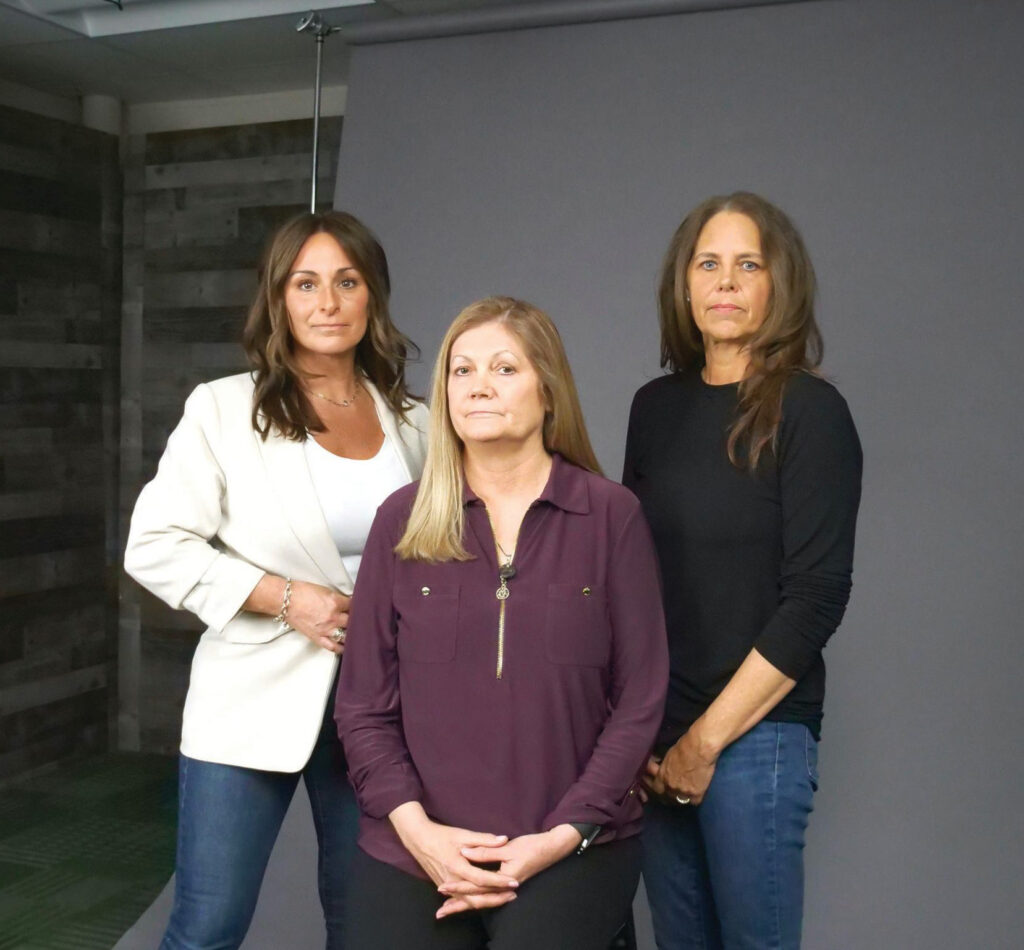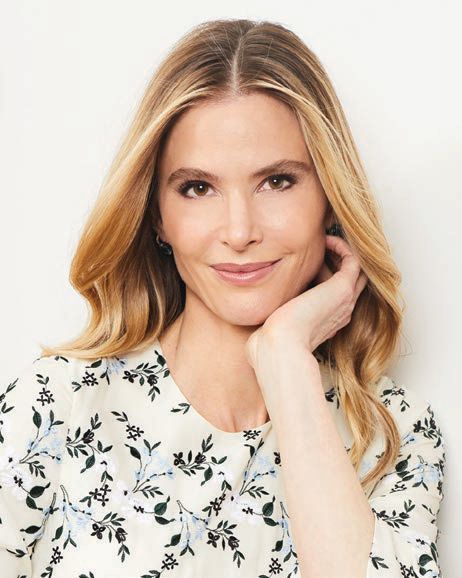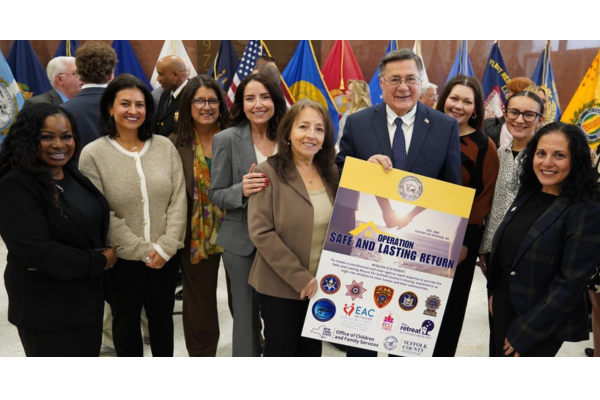FILMMAKER MARKIE HANCOCK SHEDS LIGHT ON DOMESTIC VIOLENCE WITH HER LATEST DOCUMENTARY, THE POWER OF COMMUNITY.
BY ANNELISE PETERSON
Printed in Hamptons Magazine June 2023, page 226

As we commemorate the lives of those lost in service to our country this Memorial Day weekend, we must also shine light on the battles that occur closer to home. In the United States, more than three women are murdered by their intimate partners every day, making domestic violence an ongoing crisis. Unfortunately, only 10% of victims seek help, leaving many to suff er in silence. Domestic violence not only costs American lives, but an excess of $5.8 billion is spent each year, $4.1 billion of which is for direct medical and mental health services.
Markie Hancock’s documentary The Power of Community, which premiered at the Hamptons International Film Festival, spotlights the invaluable work of The Retreat, a nonprofi t agency in East Hampton dedicated to providing safety, shelter and support to victims of domestic violence. The fi lm urges us to confront this issue bleeding far beyond our quiet Hamptons community.
In a recent interview, Loretta Davis, executive director of The Retreat, and Helen Atkinson-Barnes, The Retreat’s education program director, answered questions about domestic violence, its manifestations, and how we can stop the dysfunctional cycle of abuse that has no boundaries, impacting individuals across socioeconomic classes, races and backgrounds. “We see clients who are wealthy (from “south of the highway” in the Hamptons) as well as those who lack resources, including recent immigrants.”
HOW DO YOU DEFINE DOMESTIC VIOLENCE?
Domestic violence is defined as a pattern of coercive behavior in which one person exerts illegitimate power and control over a person with whom they have an intimate and/or family relationship.
WE SHOULD ALL BE OUTRAGED ABOUT INTIMATE PARTNER ABUSE, WHICH IS VIOLENCE AGAINST WOMEN 90% OF THE TIME. IT’S OFTEN AN INVISIBLE AND TOLERATED BEHAVIOR THAT HAS TO STOP.
MARKIE HANCOCK
FilmmakerWHAT ARE SOME RED FLAGS THAT YOU, OR SOMEONE YOU KNOW, MAY BE EXPERIENCING DOMESTIC ABUSE?
It is essential to recognize the different forms of abuse, including financial coercive abuse, which often goes unnoticed. The abuser uses disproportionate financial resources as means to control.
HOW DO WE STOP THE DYSFUNCTIONAL CYCLE OF ABUSE?
We can stop the cycle of abuse through prevention education and outreach, to change expectations about what is healthy and what is appropriate in relationships. The Retreat’s prevention education programs work with youth of all ages in schools across the East End.
HOW ARE ALL FAMILY MEMBERS AFFECTED BY DOMESTIC VIOLENCE?
Domestic violence not only affects the person receiving the brunt of the abuse but everyone in the household who is exposed to the abuse. Children learn what they see, so having the resources to assist someone to stop the abuse from occurring sends a message to everyone in the household that abusive behavior is not OK and not acceptable.
WHAT DO PEOPLE AT RISK NEED TO KNOW?
All individuals experiencing domestic violence should know that they are not alone, and support is available. In New York, The Retreat’s services are confidential and offered free of charge, assisting victims in deciding what is best for them and their families. They can help build financial independence and off er a lifeline to those in need. Support starts with their phone call to the hotline: 631-329-2200.
In raising awareness about domestic violence, we can support the healing process for countless individuals and families, ultimately creating safer and healthier communities for everyone.
To watch the fi lm, learn more about domestic violence and find out how you can end this hidden epidemic, go The Retreat’s website, allagainstabuse. org.
WHY IS VERBAL, EMOTIONAL AND PSYCHOLOGICAL ABUSE DIFFICULT TO DETECT, AND WHAT IS “COERCIVE CONTROL”?

Verbal, emotional and psychological abuse can be difficult for people to recognize, as the scars are not visible from the outside, as they can be with physical abuse. Many clients are unsure if they are experiencing this type of abuse as the way they are spoken to, insults, vitriol, demeaning remarks, and gaslighting are so common within their relationship, it can be hard to identify or label as ‘abuse.’ It is also common to make excuses for inappropriate behavior, they ‘had a bad day,’ or ‘didn’t really mean it,’ especially when the abusive person themselves is making excuses, minimizing, denying responsibility (or gaslighting their partner). When these tactics become part of every day interacting with a person, together they can form a pattern of abuse or coercive control.
Warning signs include:
Control: One partner expecting to make all the decisions, monitor their partner’s whereabouts, control who they can spend time with.
Jealousy: One partner becoming highly possessive, demanding access to passwords or becoming upset about their partner hanging out with other people.
Isolation: The person’s other relationships with family and friends are undermined.
Fear: Does the person feel safe in the relationship or afraid, off balance, or like they are ‘walking on eggshells’ and concerned about setting them off ?
The Retreat’s 24-hour, multi-lingual hotline is always available to answer questions, provide resources, and connect callers to our free services. Call 631-329-2200. Learn more about our services at https://allagainstabuse.org/get-help/
